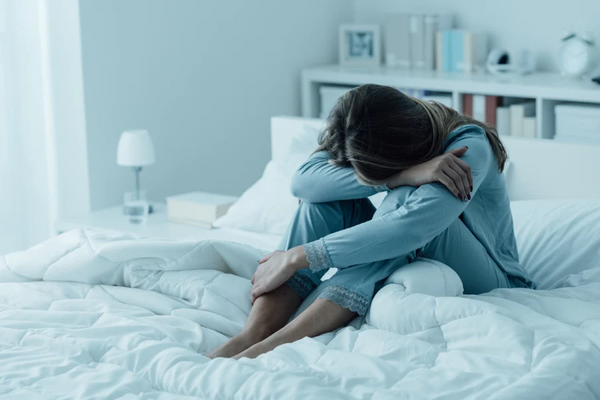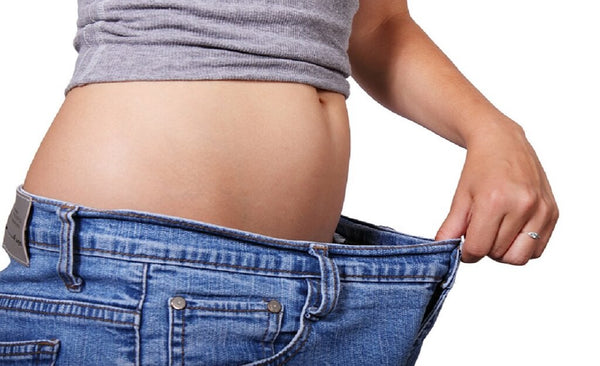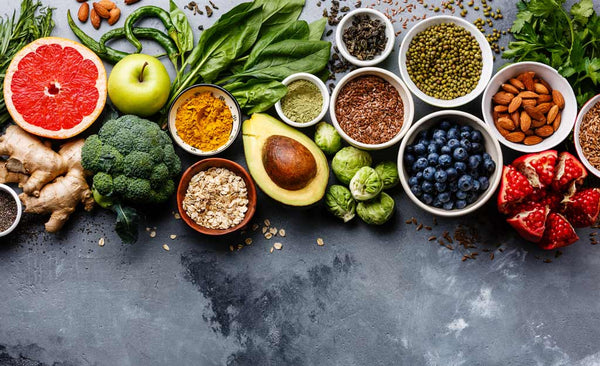
Hormones and Happiness
We all want to be happy... but how much of your happiness quotient is linked to your hormones? Well, we don't actually know.
We know very little about happiness and why some people are happier than others. But it does make sense that since emotional factors such as depression, mood swings, anxiety, irritability, and anger are closely associated with hormonal imbalance, these could be a major cause of unhappiness.
According to Psychologist Sonja Lyubomirsky happiness is 50% genetic; 40% our perception & activities; and 10% is our current circumstances. So how does hormonal imbalance overlay this interpretation of what causes us to be happy?
- Lyubomirsky, S., & Lepper, H. (1999). A measure of subjective happiness: Preliminary reliability and construct validation. Social Indicators Research, 46, 137-155. The original publication is available at www.springerlink.com
If you have a hormonal imbalance, then your happiness is subject to the degree of hormonal imbalance. Hormones will impact on your genetic preset to happiness, your current circumstances and your internal state of mind. So hormones are like a control switch to happiness.
A severe hormonal imbalance will inevitably lead to unhappiness and is indicated by antidepressants being the leading prescription for most severe hormonal conditions such as Premenstrual Dysphoric Disorder and even Menopause.
So why prescribe antidepressants for a hormonal imbalance? Well, that's because they provide purely symptomatic relief, without addressing the original cause of the imbalance (i.e. hormones and endocrine imbalance).
What this alludes to is that happiness is not only psychological but physiological as well. This means that there are internal physiological circumstances affecting how happy you are. None of the current psychology research and discussion really take this into consideration; instead, they're simply looking at our perceptive happiness.
Surely our internal happiness messengers such as dopamine and serotonin have a huge impact on our perception of happiness. From the research, we know that only 10% of our current external life circumstances impact on our happiness. This explains why people living in very basic life circumstances, such as in third world countries, can be some of the happiest people. But how much of this is hormonal?
We know that women living in rural Asia and India do not suffer from hormonal imbalances, such as menopause or premenstrual tension. Is our Western diet and lifestyle making us unhappy by disrupting our endocrine and hormonal systems and hence, our feel-good hormones?

Hormones are very powerful mediators to your emotional wellbeing and happiness. The prescription of antidepressants is at an all-time high, simply indicating that we are an unhappy society. But of course, we all want to be happy. So it makes sense to look deeper than simple external factors of happiness and understand that our internal hormonal balance is a contributor to happiness.
Depression can be separate from hormonal balance, whilst at the same time linked. It's important to determine how closely the depression is linked to physiological causes such as hormones or psychological causes such as traumatic events. I discuss this concept further in this article, so take the time to read as I explore the deeper relationship between physiological and psychological depression.
Tools to balance hormones
Mood swings, irritability, teariness, anxiety, depression and anger are all linked to hormonal imbalance. Balancing your hormone levels leads to a sense of calm, which can then lift the cloud of unhappiness and give you the motivation needed to get your diet and lifestyle in balance.
Herbal medicines
Herbal medicines are some of the best tools to use to balance hormones. Rather than giving hormones to balance hormones (which by the way is impossible), it's much better to work on the hormone control centre in the brain – the hypothalamus/pituitary axis (HPA).
Balancing the HPA leads to the balancing of the larger endocrine system and hormone levels. It's always much more effective to let the body balance itself, rather than trying to synthetically manipulate a natural process.
Some commonly used herbs to balance the HPA axis are Cimicifuga racemosa, Vitex agnus castus and Salvia officinalis. All three of these herbs are contained in Happy Hormones.
Gut health
A lot of research is validating what naturopathic philosophy has claimed for decades: that the health of the GUT is the core of all health issues.
One of the latest facts that have emerged, is that over 90% of the serotonin levels responsible for our mood is produced in the GUT. If your bacterial balance in your gut is upset because of diet, lifestyle and medications such as antibiotics, contraceptive pill or steroids, then the production of these feel-good hormones is reduced; and so causes a feeling of unhappiness.
Fermented foods and drinks can play a very important role here in not only rebalancing GUT health but also balancing hormones. A healthy GUT helps to break down and metabolise hormones properly, which otherwise would be recirculated in your system and contribute to hormonal imbalance.
Recipes are available in our free 8-Week Hormonal Balancing Program.
Conclusion
Happiness is a complex subject, as is depression and emotional health. However, I think it's important to do some deeper investigations into your own happiness to determine how hormones may be having an overriding influence on genetics or the core factors, perception and life circumstances.
For more interesting discussions of health, hormones and happiness join any of our private online communities to reach out and share your experience with thousands of other women who are in their journey to better hormonal health and wellness!






















